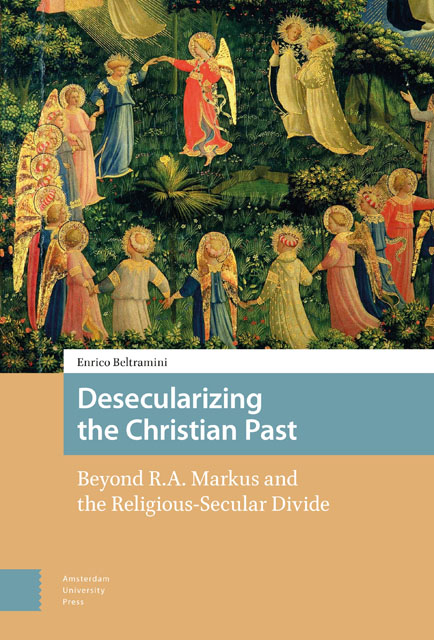3 - History and Theology
Published online by Cambridge University Press: 18 November 2023
Summary
On Method
Andrew Willard Jones's Before Church and State and Brad Gregory's The Unintended Reformation are two different projects. The former is a meticulous reconstruction of the social worldview of the Christian kingdom of France in the thirteenth century. The latter is a much more ambitious project, aiming to reformulate the existing scholarship on the contribution of the Reformation in the development of modernity. Both books, however, mention “sacramental ontology,” namely a unifying vision of reality in which earth and heaven, or the human affairs and the divine affairs, are considered together. Sacramental ontology stands as a synonym to unity in distinction of the two orders of knowledge. For Jones, this vision contradistinguished thirteenth-century France. For Gregory, this vision, which marked the Christian premodern, has been substituted by a fractured, eventually nihilist modern replacement. Clearly, the sacramental plays a different role in the two authors’ books. In Jones's book, the sacramental becomes a useful tool to challenge the notion that the Christian premodern can be investigated from a secular point of view. In Gregory's book, the passage from the sacramental to nihilist modernity rewrites secularization.
The target of Jones's Before Church and State is twofold: on one hand, the secular is a central modern epistemic category, a category to construct, codify, grasp, and experience a realm or reality differentiated from the religious. On the other, secularism is understood as a kind of secular worldview. The secular did not exist in thirteenth-century France, and therefore no secularization was possible. This conclusion, of course, raises a methodological question: how suitable is a secular epistemology to investigating a non-secular reality? Historians investigate non-secular realities all the time, but they investigate these non-secular realities through a secular lens. The question Jones raised, however, is more specific: how to address a historical reality with a supernatural end? The supernatural is beyond the competence of history, for ultimately it is transcendent, and its acceptance is a function of a personal faith. But this is only one side of the problem. The position to investigate the Christian premodern without including the supernatural is a position concealing an implicit and untenable Christology. Once again, historians can object to this theologically based criticism by maintaining that they are working as historians and that the exclusion of the supernatural is the inevitable conclusion of an examination of the past driven by historical method.
- Type
- Chapter
- Information
- Desecularizing the Christian PastBeyond R. A. Markus and the Religious-Secular Divide, pp. 93 - 114Publisher: Amsterdam University PressPrint publication year: 2023



